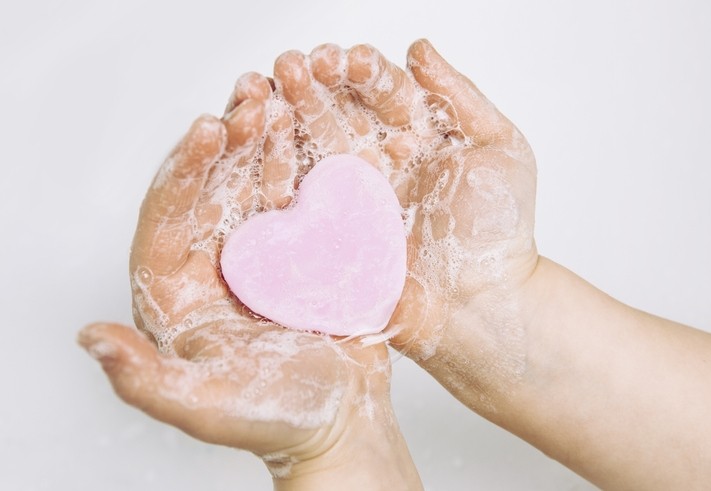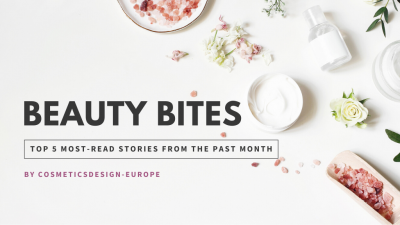‘A test of flexibility, innovation and resilience’: Polish beauty shows signs of COVID-19 recovery

The ongoing global coronavirus (COVID-19) pandemic has had a widespread impact on all areas of the beauty and personal care category – creating retail and fulfilment disruptions, ingredient and raw material gaps and broader production challenges. And in two separate industry surveys, Poland’s trade association The Polish Union of the Cosmetics Industry confirmed its cosmetics market had indeed been hard hit by the crisis. However, it was also showing early signs of recovery.
Poland beauty – 40% of industry believe COVID-19 impact has improved
The Polish Union of the Cosmetics Industry conducted the two industry surveys – one in April/May and another in September – to analyse the impact of the ongoing COVID-19 crisis on business.
In its first survey, 80% of companies with sales exceeding €50m and 62% of micro companies said business activity had been reduced by the pandemic; 35% said the impact was significant.
Results from the September survey, however, indicated just 30% of companies now considered the COVID-19 impact to be significant on business and 40% believed the situation in their company compared to the beginning of the pandemic had improved. The remaining believed their company situation had worsened (30%) or not changed (30%).
The number of cosmetic companies in Poland that were “operating as usual” had also increased from 37% in March/April to 61% in September and almost 14% had even expanded business during the crisis – many through the introduction of biocidal products or medical devices.
COVID-19 has been a ‘test of flexibility, innovation and resilience’
In the report, Renata Olszewska, sales and marketing vice-president at Polish soap specialist Betasoap, said the pandemic had in fact had “a positive impact” on company development.
“We have increased sales of our products, started a number of new investments and offer our customers new categories of bars. We believe that this trend will continue in the near future,” Olszewska said.
Agnieszka Gryc, director at Polish natural cosmetics specialist Farmona, said the rise in demand for antibacterial products among consumers had propelled it to pivot towards this segment in Spring.
“Cosmetic companies, including our company, decided to flexibly switch production to these types of products. It was not easy, because there was a shortage of both packaging and basic raw materials, such as alcohol. Those who had stocks, including companies from outside the cosmetics industry, quickly used up their resources and the market became saturated within a few months,” Gryc said.
Blanka Chmurzyńska-Brown, CEO of the Polish Union of the Cosmetics Industry, said the ongoing COVID-19 crisis had certainly been a “difficult and unexpected” test for the category.
“It has been a test of flexibility, innovation and resilience of the cosmetics industry, as well as social responsibility of our companies on which high hopes were pinned by the consumers, their employees and public administration representatives,” Chmurzyńska-Brown said in the report.
However, she said that the Polish cosmetics industry had, so far, “managed to successfully deal with this unprecedented crisis – better than many other manufacturers of fast-moving consumer goods”. The crisis, she said, had forced companies to be inventive, resourceful and open to change.
Pre-pandemic sales return will still take ‘several months’
Looking ahead, Chmurzyńska-Brown said industry had to be honest that it faced “the uncertainty of tomorrow” – created by the COVID-19 crisis but also high employment costs and legal changes.
“Although the Polish cosmetics sector has been one of the most dynamically developing branches of the national economy for many years, 2020 will probably not be successful for many companies. Since March, the purchases of colour cosmetics, sunscreen products and perfumes have decreased, compared to previous years. A return to pre-pandemic sales levels will probably take several months, provided that the pandemic situation improves,” she said.
Many cosmetics companies were calling on additional government support moving forward, either through tax reductions or flexibility (31%); exemptions or subsidies for social security contributions (20%); and financial support to protect jobs (20%), according to the report.
Over the next few months, Chmurzyńska-Brown said industry had to continue its work in taking “bold steps” on new export markets; focusing on driving online sales domestically; and creating new formulas that align with consumer needs during this pandemic.
Survey findings showed that 69.5% had already started to develop new sales channels, such as e-commerce, and 60% of companies were focused on maintaining exports or entering new markets. This was despite 59% still dealing with raw material supply chain disruption and 50% noticing reduced consumer demand.
“The Polish cosmetics sector has always been very competitive. A multitude of production companies and brands on our market, as well as the necessity to compete with manufacturers from such powerful cosmetic markets as Italy and France, have made innovation our strength. Even in times of crisis,” the Polish Union of the Cosmetics Industry said.




















